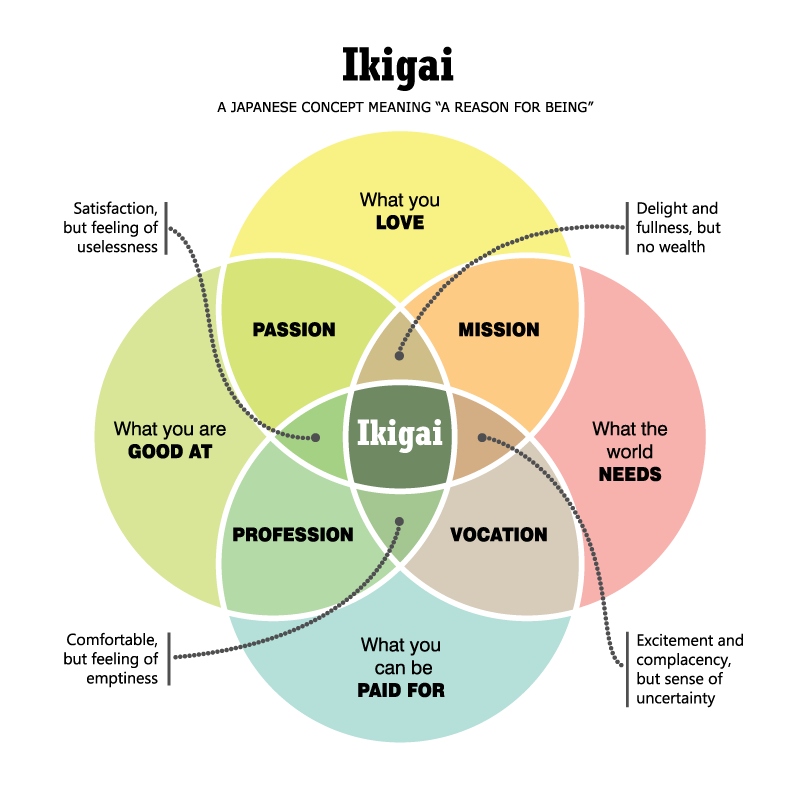The dictionary defines identity as, “the fact of being who or what a person or thing is.” Identity can be as broad as being a member of the human race or as specific as being a one cup of coffee a day drinker. There’s no set number of identities a person can have. You can have as many or as few identities as you’d like and identities can be fluid.
Identity is a form of self-discovery and helps us to understand ourselves. It is a large part of how we feel connected to who we are and where we “fit” in the world. Healthy identity development can help with having healthier self-esteem and, as a result, better mental health!
How are identities developed?
Identity development is a multi-step process that grows throughout your life. It is the process of understanding yourself within the context of our environments and backgrounds. Although some may associate identity development with the pre-teen and teenage years, it’s really an ongoing, lifelong learning process. There is no one way or path to develop our identities.
Some areas of identity development are: gender, sexual orientation, birth order, race, language, age, ability, culture, and religion. Societal standards — like race — can determine identity. But, many identities are self-defined.
How we want others to view us and how we think others view us can be very influential over how we identify ourselves. We may dress a certain way or speak a certain way to increase our associations with groups we identify with. Understanding ourselves within the context of our environment is important for identity development. Environments include how we were raised and the values instilled in us as children.
The internet can be a great source for identity development, as it provides access to different groups and communities. For example, a person who identifies as a member of the LGBTQIA+ community but lives in an area without a large LGBTQIA+ community can find comfort in exploring their identity through the internet.
Who am I?
It’s the million dollar question. As a mental health provider, I frequently get asked “Who am I?” by patients in my care. Questions around identity are really common and there is no one way to explore it. Therapy can help with identity development by creating a safe space to explore identity and thoughts freely and without judgement. For example, individuals who are exploring their gender identity can use therapy as a safe space to test different pronouns, names, etc. in order to find the identity which feels most true to them.
Exploring your identities can be hard. Having a safe and comfortable space to do that hard work is so important.
Why are identities important?
Identity development can lead to improved self-esteem and decreased anxiety. Identity and self-worth are deeply linked to developing a higher level of understanding of “who” you are. Knowing your identity leads to higher levels of self-worth. Healthy self-esteem requires acceptance of who we are. This can be difficult to do if we are unsure of who we are.
It’s easy to feel lost or disconnected if you don’t understand your identities. As people, we have a strong need to belong, and identities can lead to a higher sense of belonging.
How can you discover your identity?
Here are a few activities that you can use by yourself or in a therapeutic setting to help discover your identity. After the completion of any of these activities, I would encourage you to reflect with the following questions:
- Did anything during this activity surprise you, or did you experience anything you weren’t expecting?
- Was there anything that didn’t surprise you?
- What parts were easier for you to answer, and what parts were more difficult?
I suggest trying to go into each activity with a general curiosity around each activity.
Ask yourself some questions.
Chances are you already know yourself better than you think. Here are Some questions to ask yourself while exploring identities:
- What are my values?
- What do I enjoy?
- Who am I attracted to?
- What is important to me?
- What do I believe?
- To what groups, if any, do I feel connected?
- Have there been events that have impacted me?
- What are my favorite parts of myself?
- What are my different communities?
Just by looking at me…
“Just by looking at me…” is an activity that can help with understanding how others view you based on physical appearance versus the things they can’t see.
You begin by saying, “Just by looking at me you can tell _____.” Fill in the blank with something that can be seen by just looking at you. An example might be, “just by looking at me you can tell I like tattoos.” Next you would say, “Just by looking at me you can’t tell _____.” Fill in the blank with something that is more internal such as, “Just by looking at me you can’t tell that I love to knit.”
You can do this activity alone by writing the answers down, or you can do it with another person.
Create a Self-Portrait
This is an art based activity and requires art supplies and paper, but you don’t have to be an artist to utilize this activity! You can even use magazines or print things out that you want to include in your self portrait.
This activity is exactly how it sounds — you will create a self portrait of how you view yourself and/or how you believe others view you. I think this activity can be very eye opening for noticing differences between the ways we view ourselves versus how we think others see us.
Draw an Ikigai
An ikigai is a tool that originated in Okinawa, Japan. It is a way to find purpose in life. The ikigai has been described as the cross section of finding what you’re good at, what you love doing, what the world needs, and how you can financially support yourself. I am including an example of an ikigai below for you to use.

You matter and so does your identity.
Knowing who you are will help you feel more confident and able to be yourself. There is no “right” or “wrong” identity, there is only YOUR identity. It’s ok for your identity to change. The more you LEARN about yourself, the more you are able to BE yourself. Are you feeling stuck? Please reach out for a safe space to talk through your feelings about identity. We at Covenant Family Solutions are here to help.
Additionally, if you are interested in our self-guided courses, visit selfhelp.strengthenu.com.




